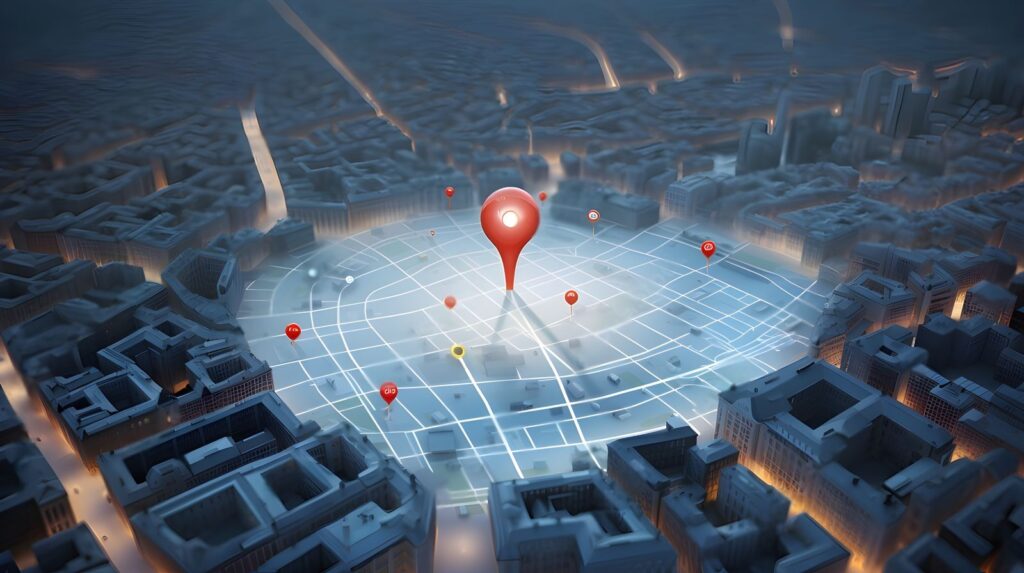
GPS technology has transformed the way we navigate, but its impact extends far beyond simply finding the quickest route. This innovative system, relying on a network of satellites to pinpoint location, has emerged as a crucial component of modern vehicle safety. From preventing accidents to aiding emergency response, GPS technology offers a multitude of benefits that significantly enhance road safety for drivers, passengers, and pedestrians alike.
The Basics of GPS Technology
Understanding how GPS technology works is fundamental to appreciating its impact on vehicle safety. The system operates through a network of satellites orbiting the Earth, which send signals to GPS receivers installed in vehicles. These receivers use a process called triangulation to determine the precise location by calculating the distance from multiple satellites. This intricate system relies on the accurate positioning of satellites, the efficiency of receivers, and the integrity of signals to provide reliable navigation and tracking services.
The Safety Benefits of GPS Tracking Technology in Vehicles

GPS and Driver Safety
One of the most significant contributions of GPS technology is its enhancement of driver safety. Real-time navigation systems guide drivers through unfamiliar routes, helping them avoid accidents and reducing distractions. With GPS for safe driving, drivers receive real-time updates about traffic conditions, road hazards, and optimal routes, leading to safer and more efficient journeys. By preventing sudden stops and ensuring smooth navigation, GPS significantly contributes to reducing the risk of accidents.
GPS and Vehicle Security
GPS technology also plays a crucial role in enhancing vehicle security. Anti-theft GPS systems allow vehicle owners to track their cars in real-time, making it easier to recover stolen vehicles. Features like geofencing enable owners to set virtual boundaries for their vehicles, receiving alerts if the vehicle crosses these boundaries. This proactive approach to vehicle security ensures that owners can take immediate action if their vehicle is stolen, greatly increasing the chances of recovery.
Fleet Management and Safety
For fleet managers, GPS technology is invaluable. Fleet GPS systems enable the monitoring of commercial vehicles, ensuring driver compliance with safety regulations and optimizing route management. By tracking driver behavior and vehicle performance, fleet managers can identify areas for improvement, reduce accidents, and enhance overall fleet safety. GPS-based fleet safety management systems also help in maintaining accurate records of vehicle usage, contributing to better operational efficiency and safety.
Emergency Response Improvement
In emergency situations, GPS technology can be a lifesaver. Emergency services rely on GPS for precise location tracking, which significantly reduces response times. Dispatch centers use GPS to locate incidents accurately, guiding responders to the exact location quickly. This capability is crucial in emergencies where every second counts, enabling faster and more efficient assistance to those in need.
Reducing Fuel Consumption and Emissions
GPS technology offers substantial environmental benefits by optimizing routes and reducing idle times. Efficient driving supported by GPS systems leads to lower fuel consumption and reduced emissions. Eco-friendly GPS systems help drivers find the shortest and most efficient routes, minimizing the environmental impact of vehicle usage. By promoting fuel efficiency and emission reduction, GPS contributes to a greener and more sustainable future.
GPS and Insurance Benefits
Insurance companies are increasingly recognizing the benefits of GPS technology. Usage-based insurance policies, which adjust premiums based on driving behavior, are becoming more popular. GPS systems provide accurate data on driving habits, enabling insurers to offer reduced premiums to safe drivers. Additionally, GPS aids in the claims process by providing precise details about incidents, making it easier for drivers to prove their case and receive fair compensation
Future of GPS in Vehicle Safety
The future of GPS technology in vehicle safety is promising, with continuous advancements and innovations on the horizon. Integration with autonomous vehicles is one of the most exciting developments, where GPS will play a critical role in navigation and safety. Future trends point towards more sophisticated GPS systems that offer enhanced accuracy, real-time data integration, and seamless connectivity with other safety features, making driving even safer.
Conclusion : The Safety Impact of GPS
In summary, the safety benefits of GPS technology in vehicles are vast and undeniable. From real-time navigation and enhanced vehicle security to improved fleet management and emergency response, GPS plays a crucial role in ensuring driver and passenger safety. As technology continues to advance, the importance of GPS for vehicle safety will only grow, making it an indispensable tool for safer and more efficient transportation.
